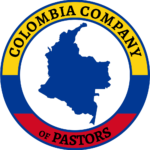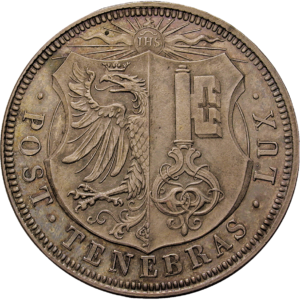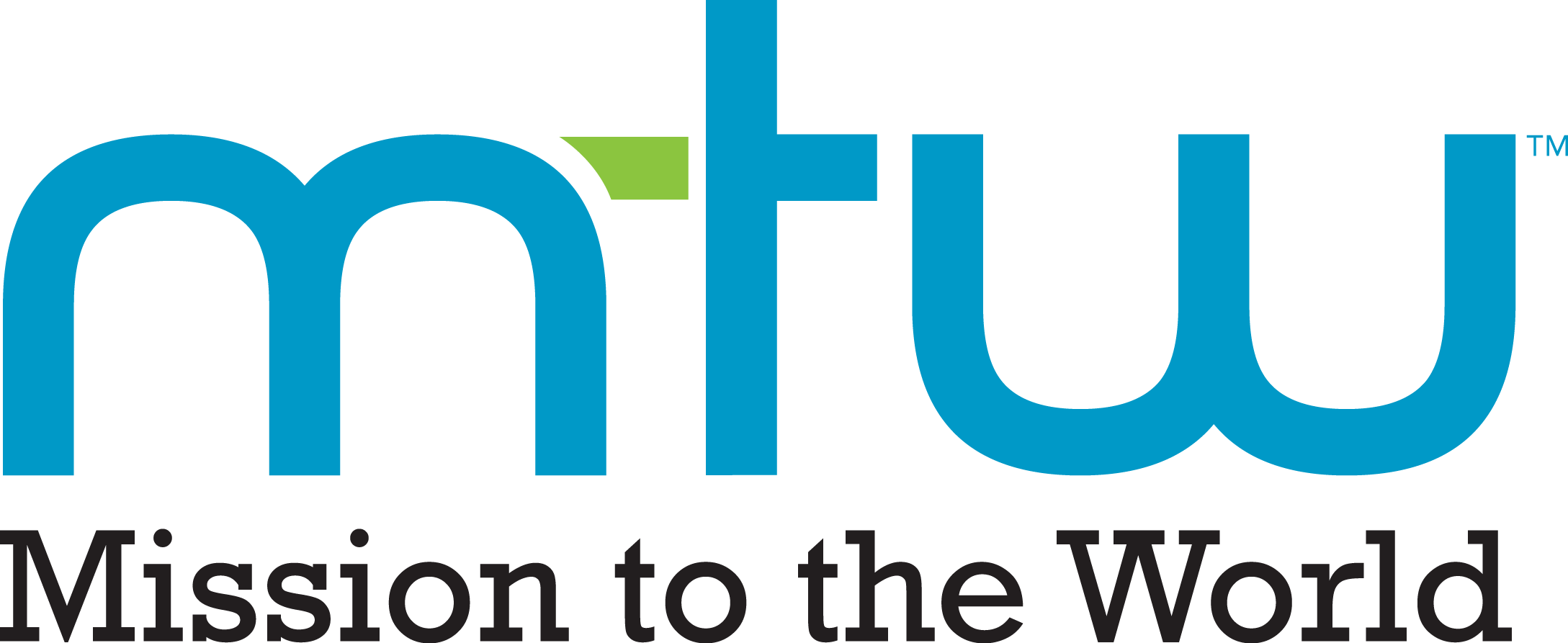Colombia Company of Pastors
Colombia Company of Pastors

The vision of the Colombia Company of Pastors is to see a God-glorifying, Christ-centered, and Holy Spirit-empowered movement of church plants in Colombia.
¡Bienvenido! Welcome to the English homepage of the Colombia Company of Pastors (CCP). What is the Colombia Company of Pastors? Great Question! The CCP is an initiative borne out of a long-standing relationship between the Presbyterian Church in America (PCA) and the Iglesia Reformada Evangélica Presbiteriana de Colombia (IREP). More specifically, it is an initiative catalyzed by pastors of PCA agencies, namely, Mission to the World (MTW) and Reformed University Fellowship (RUF). Now that we have the acronyms out of the way, we can share more about the vision of the CCP. Simply put, the vision of the Colombia Company of Pastors is to see a God-glorifying, Christ-centered, and Holy Spirit-empowered movement of church plants in Colombia.
The identity and strategy lean heavily on the ministry in Geneva that was sparked by John Calvin as foreign missionaries (he being one) and national ministers labored together.* That being said, it would be impossible to implement some aspects of Calvin’s Geneva (for example, Colombian pastors don’t receive a stipend from the government), and culturally unwise to implement others. Therefore, we desire to contextualize Calvin’s Company of Pastors in order to respect the beautiful distinctions of Colombian culture and how the Lord is at work in the church in Colombia.
We invite you to explore this page to learn more about the Colombia Company of Pastors (CCP). But we also want to be very clear. If you are reading this, we are asking two things of you. One, we want you to consider becoming a missionary in the CCP. And two, if you are not called to be a missionary in the CCP, we are asking you to partner with us. Below you will also find next steps for both options. We hope that as you learn more, you will be excited about what the Lord is doing and how you can be a part of it.
(Click on the value above to read more about it.)

1. PARTNERSHIP
I thank my God in all my remembrance of you, always in every prayer of mine for you all making my prayer with joy, because of your partnership in the gospel from the first day until now.
Philippians 1:3-5
Church planting begins with partnerships in the gospel.
There are several INSTITUTIONAL partnerships that must be developed and nurtured:
1. IREP + MTW – The primary institutional partnership is between Mission to the World (MTW) and IREP (Iglesia Reformada Evangélica Presbiteriana de Colombia). MTW is the primary missionary-sending agency, and IREP is the national denomination that we work with in Colombia.
2. Colombian Pastor + the Presbytery – The Colombian Pastor should be ordained (or ordainable) in the Presbytery in which the target parish pertains. This is a two-way partnership in which the Colombian Pastor submits himself under the authority of the Presbytery, and the Presbytery promotes and facilitates the work of a church plant.
3. Missionary Pastor + the Presbytery – The Missionary Pastor should be ordained (or ordainable) in their home Presbytery within the jurisdiction of the PCA. Furthermore, the Missionary Pastor should seek formal affiliation with the Presbytery of IREP.
4. Missionary Pastor + Supporting Ministry Partners – The Missionary Pastor has the responsibility to develop and nurture partnerships through which prayer, financial resources, human resources, and other material support may be received.
5. RUF + MTW – Believing that campus ministry is vital to church planting (including evangelism, discipleship, and leadership formation), MTW missionaries should develop and nurture partnerships with Reformed University Fellowship (RUF) in order to implement the RUF philosophy of ministry to the best of their abilities.
There are also PERSONAL partnerships that need to be developed and fostered. There are several scenarios that could be considered:
1. Missionary Pastor + Colombian Church Planter – This is the most basic partnership that must exist in order to be sent to a parish to plant a church. At a minimum, a church plant will be initiated by this two-person “church-planting team.” The Missionary Pastor may serve a majority of their time in the church plant or on the university campus, but will provide financial and human resources for the Colombian Church Planter and the church-planting work.
2. Church-planting Team + Missionary “Teacher” – Calvin’s Ecclesiastical Ordinances of 1541 included the role of “teacher” or “doctor.” This contextualized role would be a missionary whose main focus might be in campus ministry or teaching in Colombian seminaries, but who would devote a large portion of their time to serving the church-planting team. The missionary teacher would also provide financial and human resources for the church-planting work.
3. Church-planting Team + Missionary “Elder” – A Missionary “(Ruling) Elder” would partner with a Church-planting Team where he would also provide financial and human resources to the church-planting work. The Missionary Elder would help to shepherd the church-planting work, but should seek ordination as a Pastor (Teaching Elder) if he were to desire to teach and preach regularly and administer the sacraments.
4. Church-planting Team + Missionary “Deacon” – The Missionary “Deacon” would partner with the Church-planting Team by providing financial and human resources. Furthermore, their main focus would be on displaying the gospel through meeting administrative needs of the church-planting work, serving the physical needs within the church-plant, and serving the community through public mercy ministry.
*All missionaries are expected to raise prayer, financial, and material support for the church-planting work.*
*The PCA and the IREP affirm a two-office view of church government (ie., elder and deacon). Calvin’s seemingly 4-office view, though, can be helpful as potential missionaries consider their gifts and callings.*

“It is inaccurate to portray Calvin and his pastoral colleagues as ivory-tower theologians, disengaged from the everyday concerns of their parishioners. On the contrary, as evident in their ministries of preaching and pastoral care, the pastors of Geneva devoted much of their time and energy to addressing practical matters of Christian discipleship, enjoining townspeople and peasants alike to conduct lives characterized by faith, hope, love, and repentance.”
– Scott M. Manetsch, Calvin’s Company of Pastors

2. PARISH
Pay careful attention to yourselves and to all the flock, in which the Holy Spirit has made you overseers, to care for the church of God, which he obtained with his own blood.
acts 20:28
Though there are regional (Presbytery), national (General Assembly), and international (global missions) duties, these all begin with parish ministry. Parish ministry is covenantal. Though there is much that could be said, parish ministry can by described as…
1. MISSIONAL – In the Covenant of Redemption, the triune God “covenants” a mission in with the Father decrees, the Son fulfills, and the Holy Spirit applies the work of redemption. To be missional implies intentionality. The church-planting team (see “Partnership” above) enters into a parish with a clear and intentional mission, recognizing that the Covenant of Redemption envelops his church as a means to fulfill that mission.
2. INCARNATIONAL – The Covenant of Redemption enters into space and time through the Covenant of Grace. The eternal and divine mission bleeds into temporal and human mission through the person and work of Jesus Christ. Jesus Christ truly redeems and justifies us as our Savior, and he also informs the ministry of his people as he is also our Lord. As Christ “tabernacles” with his people, the church-planting teams “tabernacles” in their parish, becoming entwined in the fabric of the their community within and outside of the local church. Church planting does not occur from “above, beside, or below” the parish, rather church planting occurs from within the parish.
3. HOLISTIC – In the Covenant of Grace, the Word becomes flesh–the spiritual is manifested in the carnal. Simply put, this means that parish ministry includes word and deed ministry. A covenantal approach helps us avoid the pitfalls that our physical well-being is of no importance (gnosticism, under-realized eschatology, etc.) or that our physical well-being over-shadows our eternal state (prosperity theology, over-realized eschatology, etc.). The church-planting team will pursue a holistic discipleship in their parish where the gospel will be proclaimed through the ordinary means of grace and demonstrated through works of mercy.

“The parish must be a living organism, where every member plays a role in the spiritual and practical life of the community.”
– Thomas Chalmers, The Social and Political Influence of Christianity (1834)
“To reach the heart of the parish, the ministry must engage in the daily life and struggles of his parishioners.”
-Thomas Chalmers, The Expulsive Power of a New Affection (1849)
“T

3. PROPAGATION
Pay careful attention to yourselves and to all the flock, in which the Holy Spirit has made you overseers, to care for the church of God, which he obtained with his own blood.
acts 20:28
Church-planting ministry begins in the parish, but no parish is a cul-de-sac. Every parish should be a thoroughfare to the nations. Though it is impossible to know an exact number, Calvin’s Geneva reportedly dispatched more than 200 missionaries to other parts of France, throughout Europe, and even to South America. The church-planting team will seek the propagation of church plants throughout Colombia and beyond. This is accomplished by…
1. MULTIPLYING PARTNERSHIPS – Both missionary and Colombia pastor must involve themselves in strengthening existing partnerships (see “Partnerships” above) and cultivating new ones. Through the propagation of these partnerships, an interdependent synergy produces multiplicative or even exponential growth.
2. MULTIPLYING PARISHES – One aspect of the beauty of the church is the interconnectedness and interdependency between the local church and the universal church. For this reason, the local church can be an “end” as well as “a means to an end,” and these two are not in conflict. The church-planting team keeps their eyes on the local church while keeping their finger on the pulse of the universal church. To multiply churches, parish church must disciple the next generation of laity as well as the discipleship of pastors, teachers, elders, and deacons.

“The gospel does not fall from the clouds like rain, by accident, but is brought by the hands of men to where God has sent it.”
– John Calvin, Commentary on Isaiah, 55:10
“It is the task of the church to make the invisible kingdom of Christ visible.”
-John Calvin, Commentary on the Psalms, Psalm 87
IN PRACTICE
So what does this look like in practice? This timeline provides a general idea of what it might look like as a missionary is on-boarded, trained, and sent.
PRE-FIELD
(Onboarding)
- The interested candidate reaches out to the MTW missionaries in Colombia for more information. These conversations should include what (if any) potential Colombian pastoral candidates are in process.
- The interested candidate applies with MTW.
- After submitting the application form to MTW, the interested candidate submits the “Supplemental Application” to the MTW Colombia team leader. (Supplemental Application coming soon.)
- Upon provisional approval from MTW, the interested candidate will complete a field visit to either Bogotá or Rionegro, depending on which field they are interested in. This will be a time to get to know the MTW and the local churches that we work with.
- The interested candidate will continue through the evaluations and trainings provided by Mission to the World.
- The missionary (once approved) will begin raising support which will included an appropriate budget for the church plant.
- Throughout this process, the missionary will cultivate new partnerships with individuals, families, churches, and presbyteries to sustain the church planting work.
- Though it varies depending upon many factors, the missionary should anticipate around 18-24 from application submission to having support raised and approval to move to the field.
YEAR 0
(Language)
- The missionary will attend an approved Spanish language school. If the missionary is already fluent, they must pass a language exam to go straight to the field. Language learning is the first step towards a parish ministry.
- The missionary will also use this time to integrate into their local latino community, even though it may be different than the culture of their long term field of service. Gaining the skills to “exegete” the culture, will serve the missionary long-term.
- The missionary should take advantage of this time to complete any other requisites that are in progress (eg., theological studies, ordination exams, strengthening partnerships, etc.).
YEAR 1-2
(Apprenticeship & Discernment)
- The missionary will begin integrating into the Colombia Company of Pastors.
- The missionary will strengthen their partnership with the Colombian church planter relationally and ministerially.
- The missionary and Colombian church planter will serve as church-planting apprentices under the local church and MTW team.
- The missionary will strengthen their relationship with the IREP Presbytery and Denomination.
- Through conversations with the MTW team, the local church, and IREP, the church-planting team (missionary & Colombia church planter) will determine in which parish they seek to plant a church. Currently there are rural options (el Oriente Antioqueño) and urban options (Bogotá & Medellín). Serving in other parishes outside of these areas are dependent on a Colombia church-planter that is willing and able, and this might also require a longer apprenticeship.
YEAR 3+
(Dispatch)
- There are many factors that will go into the decision as to when to send a church-planting team to their target parish. Approval must be given by the MTW team leader as well as the IREP Presbytery.
- The church planting team will move to their target parish and begin the church-planting work.
- The church planting team will continue serving in the Colombia Company of Pastors (either based in Antioquia or Bogotá).
- The missionary(ies) on the church-planting team should try to keep their first HMA (after their first term) as short as possible in order to best serve the needs of the church-planting work. If there are multiples missionaries on the church planting team, they should seek to not be on HMA concurrently.
- Since each church plant is unique, the church-planting team should wisely establish a time-horizon to transition away from dependency on foreign human and financial resources. The missionary(ies) should anticipate at least an 8-year (two terms) commitment of their resources.
- The missionary(ies) should seek the stability and “particularization” of the church before fully transitioning out of the church plant. As a part of this, the church plant should continue by having the Colombian church planter serve as the long-term pastor, or the church planting team should identify and install a Colombia pastor.






